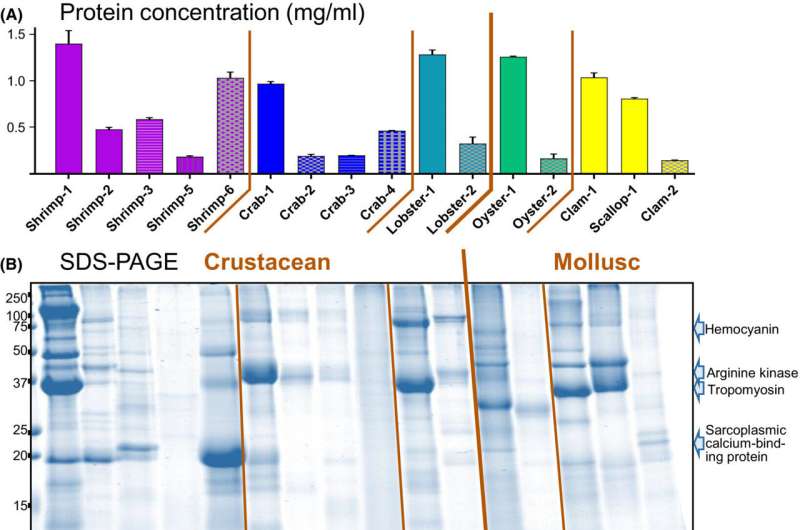This article has been reviewed according to Science X's editorial process and policies. Editors have highlighted the following attributes while ensuring the content's credibility:
fact-checked
peer-reviewed publication
trusted source
proofread
Scientists call for standardization of allergy tests after trials show them to be unreliable

Dr. Thimo Ruethers from James Cook University's Australian Institute of Tropical Health and Medicine (AITHM) and JCU's Tropical Futures Institute (TFI) in Singapore says that shellfish allergy affects up to 3% of the general population, is usually lifelong and commonly triggers anaphylaxis—a condition that leads to respiratory collapse and can be fatal. In Australia, shellfish allergy is the number one trigger of food-related fatal anaphylaxis.
"Skin prick testing (SPT) is often the preferred first-line diagnostic approach. This involves a health worker placing a drop of allergen extract on the surface of the arm then pricking through it into the arm. If you are allergic to the allergen you will have a small, itchy swelling and a reddening of the skin after 10 to 15 minutes," said Professor Dianne Campbell from The Children's Hospital at Westmead, Sydney.
But Dr. Ruethers warned that widely utilized allergen extracts in commercial SPT kits are generally not standardized, limiting the diagnostic value of results.
JCU's group leader Professor Andreas Lopata stated, "In 2019, we demonstrated considerable variability in effectiveness for 27 commercial SPT extracts for fish allergy. In the current study, using biochemical and immunological methods and mass spectrometry, we tested 11 commercial crustacean and five mollusk SPT extracts and found even greater, critical variability in their reliability." The research is published in the journal Allergy.
The scientists concluded that some of the SPT extracts lacked the sufficient amount and diversity of important shellfish allergens, meaning test results could be falsely negative, putting lives at risk.
"Standardization of allergen extracts is urgently needed to improve the accuracy and reliability of SPTs. Also, improvements in blood tests, along with the development of region-specific allergen extracts with known quantities of clinically well-characterized allergen components, are critical to achieve considerable improvements in allergy testing," said Dr. Ruethers.
He said developing more reliable allergy diagnostics requires further interdisciplinary research and is urgently needed to safeguard allergy sufferers globally.
More information: Thimo Ruethers et al, Commercial shellfish skin prick test extracts show critical variability in allergen repertoire, Allergy (2023). DOI: 10.1111/all.15853



















